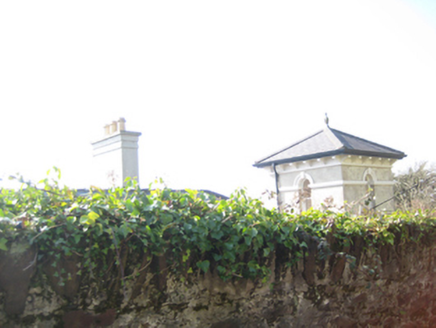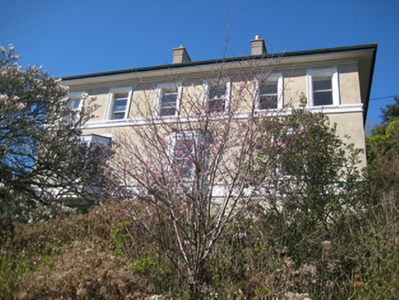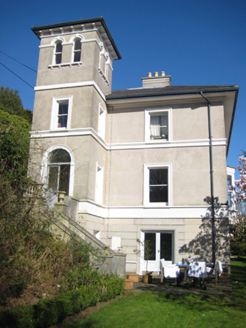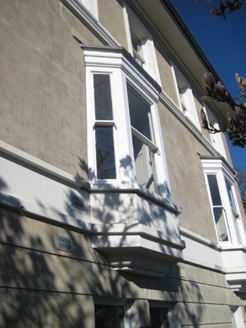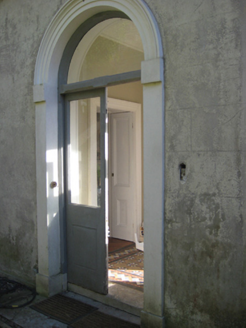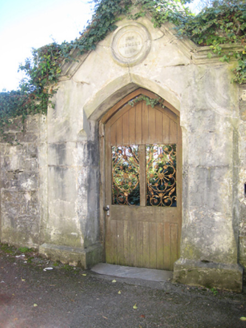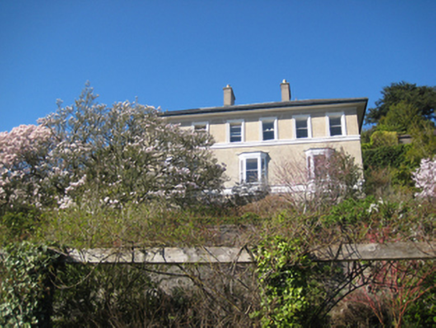Survey Data
Reg No
20863122
Rating
Regional
Categories of Special Interest
Architectural, Artistic
Original Use
House
In Use As
House
Date
1885 - 1895
Coordinates
169409, 72495
Date Recorded
22/03/2011
Date Updated
--/--/--
Description
Detached six-bay two-storey over basement house, dated 1890, built on a rectangular plan in the Italianate style with four-stage entrance tower to side (west) elevation. Hipped slate roofs, with finial to tower, rendered chimneystacks, profiled gutters on overhanging eaves, corbelled eaves to entrance tower. Unpainted ruled-and-lined smooth render walls, moulded render eaves course, continuous corniced sills course to first floor, plat band to ground floor below sills level, channelled render to basement. Round-headed window openings to second floor of entrance tower with moulded render surrounds, keystone, archivolt and lintel course, painted corbelled sills, one-over-one timber sliding sashes. Square-headed window openings elsewhere, in moulded render surrounds to first floor garden (south) elevation; three canted bay windows to ground floor garden elevation. Replacement one-over-one timber sliding sash windows throughout. Round-headed door opening at entrance tower, moulded render surround, plain glazed fanlight, double leaf timber and glazed entrance doors giving access to tiled porch. Accessed from street level by path. Set in own grounds bounded by rubble stone walls with soldier coping, timber and wrought-iron pedestrian gate in pedimented dressed limestone gateway having pointed arch opening with chamfered reveals, date stone inscribed ‘Dun Desmond 1890'.
Appraisal
Dun Desmond is a fine example of the late nineteenth century Italianate style. The garden façade is enlivened by the render dressings and the three canted bay windows which give views over the terraced gardens and the River Lee. The fanciful entrance tower is particularly eye-catching. This imposing house forms part of a group with other large scale houses which were built by local merchants in the nineteenth century, on this elevated site overlooking the harbour which was the source of their wealth.
